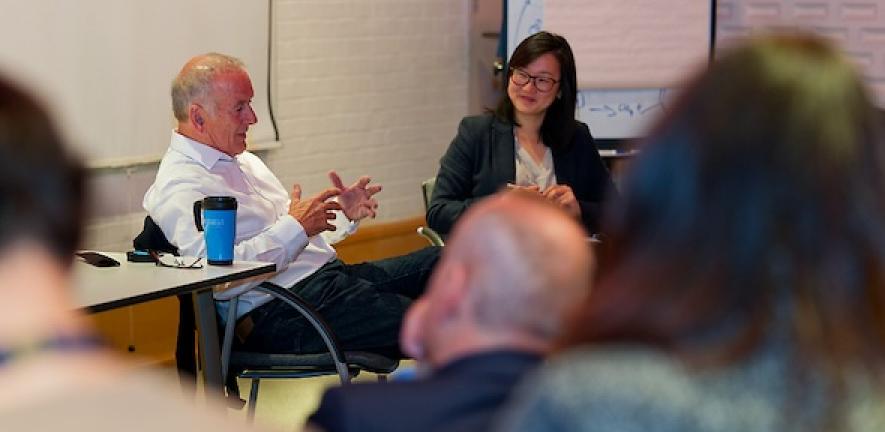
The competition, which is organised by Cambridge Zero Postgraduate Academy, is seeking proposals for ways to create more sustainable labs that could facilitate greener science. The winning team could get up to £4 thousand in funding to carry out their idea.
The competition was open to teams of one or more persons based in a teaching or research laboratory from any department across the university. Entrants submitted a pitch which included a description of the problem they hoped to solve, their proposed solution, the expected environmental impact, expected costs and savings, and scalability.
Projects were judged for their potential impact on energy and water consumption, use of materials and waste, as well as innovation and creativity, scalability across other labs, potential return on investment with respect to cost, and feasibility of implementation.
The three shortlisted entries have been invited to produce and submit a video pitching how their idea will work. The finalists will be assessed by a panel of expert judges and will be showcased at an awards evening in March 2025 in the Department of Chemistry to celebrate the winners and to share excellent sustainable laboratory practice.
Cambridge Zero has provided £2 thousand in prize money to implement the winning solution, and the Carbon Reduction Fund has offered an additional £2 thousand in matched funding to scale the impact of the winning idea across the university, which means the winning team could receive up to £4 thousand a funding to put their proposal into action.
Shortlisted finalists
Sustainabli
Department of Materials Science and Metallurgy
Shut-the-sash competitions are well-known for reducing fume hood energy waste, but they are difficult to scale because of technical problems with collecting and analysing data and monitoring long term behaviour change. This proposal aims to overcome this problem by running a sash competition which uses technology developed by Cambridge-based startup Sustainabli. The technology enables fume hood monitoring, analytics and buiiding automation, and has been offered by Sustainabli at a discount. The proposal has potential for rapid scaling and return on income within a year.
Cut Waste, Not Corners: Recycle with Ease in the Lab
Department of Surgery
Biomedical and life sciences research is critical for advancements in health and medicine, but it is also responsible for producing millions of tonnes of single-use plastics annually, contributing to almost half the global plastic waste. This is a proposal for the design and introduction of a new waste-bin in labs which would encourage and facilitate recycling of the wrappers of sterile one-use plastic equipment. The bespoke system would overcome barriers of high workloads and tight lab spaces and could be be adapted to many types of lab spaces.
EcoSolve Recycling: Sustainable Solvent Recovery Initiative
Department of Materials Science and Metallurgy
This proposal aims to implement a solvent recovery system to tackle the environmental impact of solvent use in labs, especially in battery fabrication and 2D device development. The recovery system would enable this lab to minimise solvent waste, reduce emissions and expenses associated with solvent purchase and disposal. It is thought the approach would be scalable across various research fields and could set a model for broader application.
Our department
The Hunter group in this department submitted an entry which would help reduce the waste created during the preparation of the monomers used in solid-phase synthesis. Solid-phase synthesis is a highly efficient automated way to produce sequence-defined synthetic oligomers, but the preparation of the monomers used in this process creates a lot of waste. The team proposed an approach to recover unreacted monomers from the waste stream, which would make the process more efficient and sustainable.
In the written feedback, the judges stated it was an excellent idea but that they did not include it in the shortlist because it was not scalable enough across the University as it was specific to their research.

